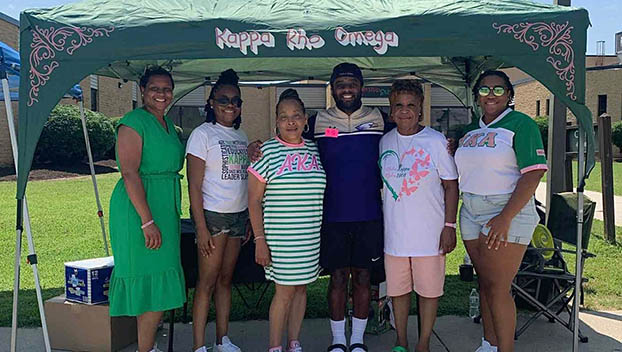New virus making its way to Virginia
Published 8:30 am Thursday, July 14, 2022
|
Getting your Trinity Audio player ready...
|
While Americans are still faced with the COVID-19 virus, a new virus is making its way into the country and Virginia. Since the end of May, cases of the monkeypox virus have been reported in the Commonwealth according to the Virginia Department of Health (VDH).
Monkeypox is a potentially serious viral illness characterized by a specific type of rash. Rash lesions can begin on the genitals, perianal region or oral cavity and might be the first or only sign of illness.
Co-infection with sexually transmitted infections has been reported. Some patients also have a fever, headache, muscle aches, exhaustion, and swelling of the lymph nodes before developing a rash, according to VDH.
Trending
Symptoms generally appear six to 14 days after exposure and, for most people, clear up within two to four weeks. State health officials explain that person-to-person spread occurs with close contact, direct contact with body fluids, or contact with contaminated materials such as clothing or linens.
As of Monday, July 11, the total number of cases sits at 790 cases reported in the United States.
Of those cases, 27 are Virginia residents, with the latest presumed case of monkeypox announced by the VDH on July 11 is a resident in the Northwestern region of the Commonwealth.
According to a press release from the VDH, the new case is an adult male who is currently isolated, and officials are identifying and monitoring the patients’ close contacts.
As of July 8, the Centers for Disease Control (CDC) has reported 8238 cases of monkeypox identified in 57 countries.
Piedmont Health District Director Dr. Maria Almond said to date, there have been no reported cases of the monkeypox virus within the seven-county district that encompasses the counties of Amelia, Buckingham, Charlotte, Cumberland, Lunenburg, Nottoway and Prince Edward.
Trending
“We continue to keep a careful eye on the spread of monkeypox within Virginia,” Dr. Almond said.
When a monkeypox case is identified in Virginia, Dr. Almond said VDH works to isolate the patient, identify and monitor close contacts, and, if needed due to severity of illness or multiple comorbidities, coordinate with CDC on possible treatment using therapies for smallpox.
“Many individuals infected with monkeypox virus have a mild, self-limiting disease,” Dr, Almond said. “Currently, there is no treatment approved specifically for monkeypox virus infections. However, antivirals developed for use in patients with smallpox may prove beneficial against monkeypox.”
Although there is no approved treatment for monkeypox in the U.S., two vaccines, JYNNEOS and ACAM2000, are available for the prevention of monkeypox. They are available through the federal government as postexposure prophylaxis for people who had close contact with a person with monkeypox and are at highest risk of exposure.
“Right now, all available doses of vaccine are being sent to areas of the state where transmission is the highest to provide to those populations most at-risk due to exposure or even the potential for exposure,” Dr. Almond said. “However, throughout the state, careful planning is occurring to position us well to respond as needed wherever we reside. This is currently a manageable outbreak, but we need to act effectively across the board. Health care providers need to know how to identify and test for this viral infection; community members need to seek care immediately for any concerning symptoms, and public health needs to work decisively to staunch further transmission through identification of contacts and appropriate use of vaccines.”
If you have symptoms consistent with monkeypox, seek medical care from your healthcare provider immediately, especially if you are in one of the following groups:
• Those who have had contact with someone who had a rash that looks like monkeypox or someone who was diagnosed with monkeypox.
• Those who have had skin-to-skin contact with someone in a social network who has monkeypox. This includes men who have sex with men.
• Those who traveled to places or attended events where monkeypox cases have been confirmed in the month before symptoms appeared.
• Those who have had contact with household items, such as towels, bedding or clothing used by a person with suspected or known orthopox or monkeypox virus infection.
• Those who have had contact with a dead or live wild animal or exotic pet from Africa or used a product derived from such animals (e.g., game meat, creams, lotions, powders, etc.).
Multiple countries are currently experiencing a monkeypox outbreak. To date, three deaths have been reported globally in this outbreak.



